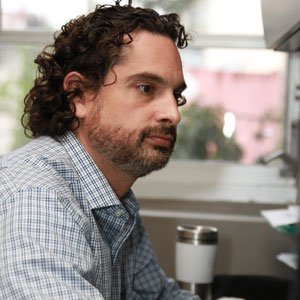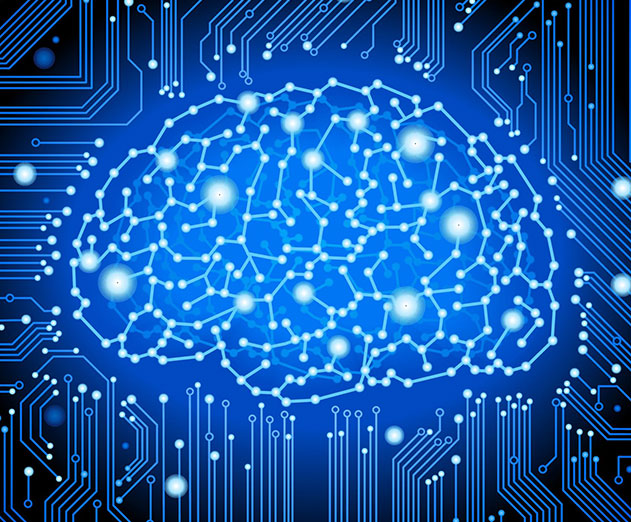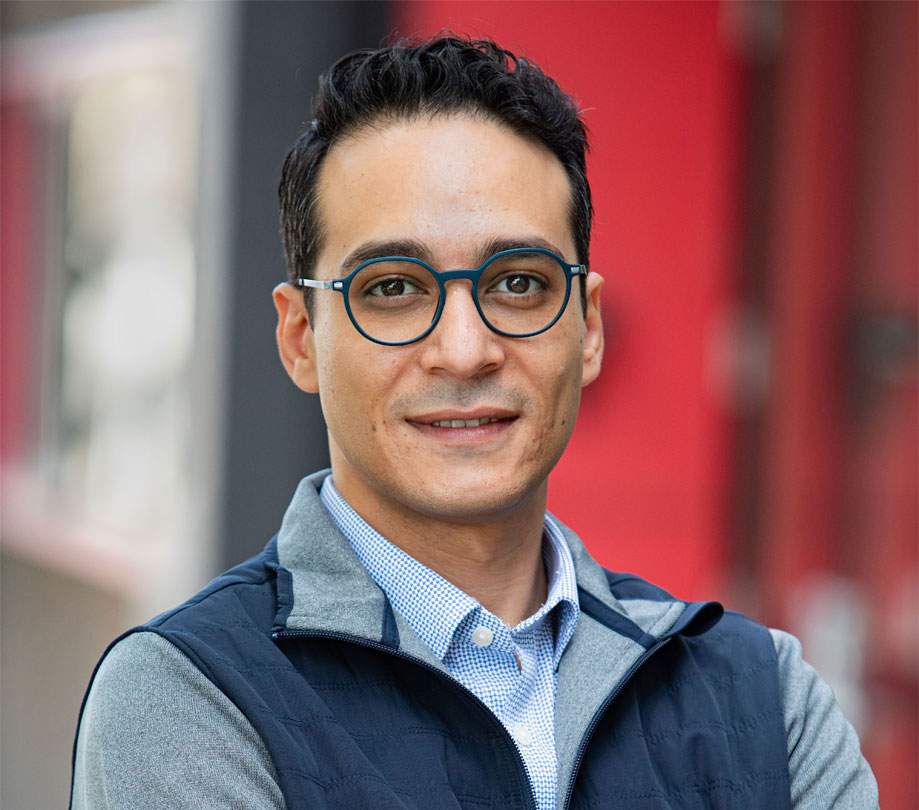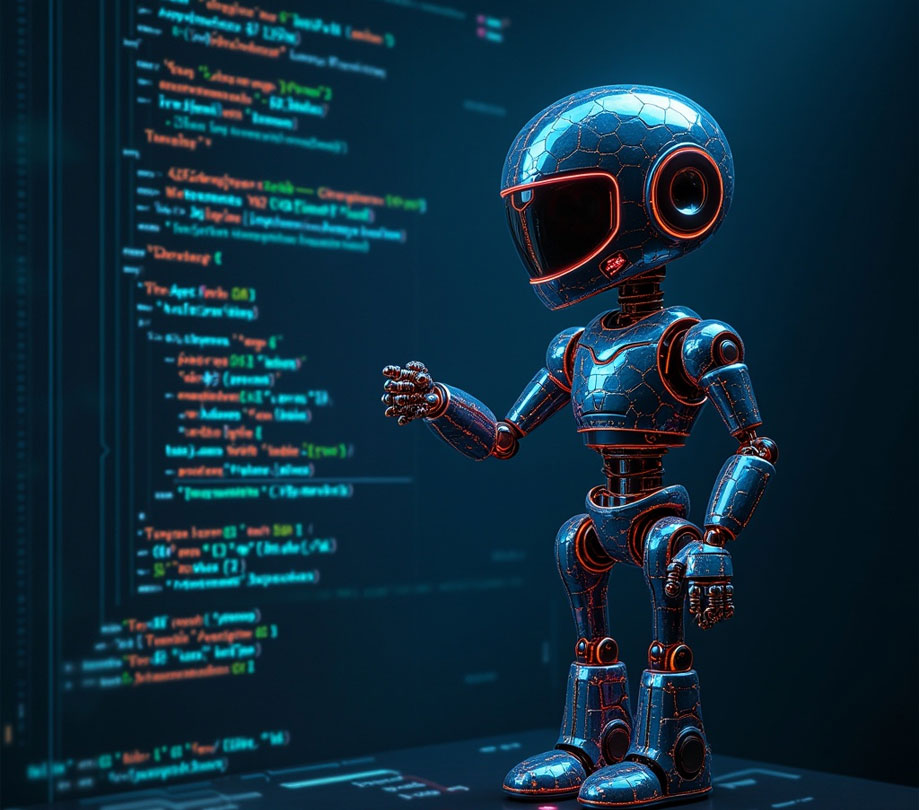The impact of AI on the nearshoring market
Tuesday, September 19, 2017

|
Richard Harris |
How AI and machine learning solutions for enterprise are changing the nearshoring industry.
Artificial Intelligence solutions, such as machine learning and deep learning algorithms, and chatbots, are fast becoming a business necessity for organizations everywhere, helping them make data-driven predictions to improve business outcomes, enhance customer service and to improve business workflow.
But as a nascent and complex technology, it's difficult for companies to understand how they can best incorporate AI into their organizations, most efficiently and cost effectively. The article explores the complexity of building AI solutions to meet today's pragmatic market needs and how nearshoring is experiencing a resurgence due to the demand for data scientists and skilled engineers who can operate in similar time-zones, cultures and languages to help companies make the AI transformation as effectively as possible.
Carlos Melendez is COO and co-founder, Wovenware, a firm providing nearshoring software engineering services for their customer's digital transformation initiatives. We sat talked with Carlos about how he has seen changes in the nearshoring software engineering industry as AI and deep learning becomes more prevalent.
Melendez: Artificial intelligence is no longer a competitive advantage - it has become a business necessity. Many organizations have already jumped on the bandwagon, using AI for improved workflow, customer service and running their businesses better. For example, insurers are using it to sell more loans, car manufacturers are using to enable cars to drive themselves, and hospitals are using it to predict the likelihood of certain patients being re-admitted to hospitals.
The funny thing about it is that AI isn't new. In fact, it was developed in the '70s and '80s and updated in the 2000's with deep learning technology. But it hasn't been until recently that the hardware caught up to the software enough to capitalize on the business opportunity.
Melendez: Currently the huge tech giants, i.e. Google or Facebook, are investing the most in AI to predict user behavior, yet the automotive industry is investing tons in AI since it's the future of autonomous vehicles. Other adopters include insurance, healthcare, retail which are using it to improve customer service, gain greater insights to make smarter business decisions and automate tasks.
While it's fun to hear of the large-scale deep learning AI taking place with Google Brain, Microsoft Cortana or IBM Watson and others, the more practical, or pragmatic AI is truly transforming the business world today, in day-to-day business processes, such as customer service where chatbots are deployed to provide 24/7 support; or in billing where machine learning tools are identifying discrepancies in payments.
Melendez: AI, or machine learning algorithms, are really only as good as the data that goes into them. The key for software engineers is to create a machine learning algorithm that enables software to not only identify things with a high level of accuracy but to also continuously learn from it. AI is all about predictive analysis and that doesn't happen overnight or at one-time.
It's all about sorting through vast amounts of data, labeling it and cleaning it to build and train and re-train an algorithm that can help it identify precisely what you are hoping to find. Accomplishing this can certainly be a tedious process, literally pouring through tons of data, to simply mark specific things. To complete the process as quickly as possible, most AI experts have used the power of many "bodies," or pubic crowds who, as long as they have eyes to identify objects or text and label it, are put on the job. Many programmers have learned that they need more experienced data specialists to conduct this cleaning and identification so that important clues in an object are taken into consideration. They now are using "Private Crowds" who can see something the way an algorithm would, and can provide much richer training.
Melendez: Offshoring of IT services has been a huge success in the past, since it allowed companies to accomplish many back-office tasks and IT call center support quickly and cost-effectively. Yet today's AI solutions are much more complex than anything in the past, and require the skills of a data scientist. While there is a shortage of data scientists around the world, it is even more prevalent in off-shore regions.
Additionally, with today's AI-based solutions, the issue of cost is not as important as the need for specialized skills. It's also important to be in close collaboration and communication between company and service provider, since AI solutions are not done once and forgotten, but require continuous learning, and a deep understanding of specific industries and tasks - which are often more easily accomplished closer to home.
Melendez: Given the rapid pace of technology advances, companies are under pressure to continually enhance software to improve business value, provide market differentiation and competitive advantage.
Emerging solutions that incorporate machine learning, chatbots and other smart apps are complicated to build and maintain, requiring the specialized expertise of software engineers and data scientists. It's important that you and your outsourcer speaks the same language, in the same time-zone, to understand your specific requirements and share critical information in real-time, and most nearshoring firms can meet these requirements.
And while nearshoring is slightly more expensive than offshoring, it is considerably less expensive than hiring internal teams of data scientists and software engineers, who are in high demand.
Melendez: Key things to consider, are the education and skill of the workforce, who should be up-to-date on the latest technologies and innovations in AI, with specialized expertise in specific industries. They also will find it easier to do business if their provider is in the same time zone, speaking the same language and having the same culture. Today's AI-based apps and chatbots must understand the nuance of language and learn to understand cultural behavior to be able to provide effective customer service.
There also are regulatory issues to consider. For example, in the U.S., government entities require that work performed by contractors must be conducted by U.S. citizens.
Probably the most critical requirements for a nearshorer to have when working on your AI projects is a team of highly qualified data scientists with a solid understanding of your business. You should feel like your nearshorer is a true partner, working with you not just on the technical aspects of developing an AI solution, but with strategic insights to move your business forward.

Melendez: This need for skilled data scientists is fueling a huge growth in the nearshoring market in Puerto Rico. For one reason it's home to the largest engineering university in the Caribbean, which graduates a large pool of software engineers and data scientists every year - and, because there is not enough demand yet in Puerto Rico for their expertise - they are available to offer their skills in an outsourcing capacity.
Because of its proximity to the mainland U.S., it is easy for companies to communicate, collaborate and conduct business based on a similar time zone. As a territory of the U.S., Puerto Rico, shares the same culture, language, rules and compliance as the rest of the U.S., and its residents, who are U.S. citizens, can fulfill U.S. regulatory requirements.
Additionally, there are economic benefits to working with nearshorers in Puerto Rico. Companies can save between 30-50%, over nearshorers in the mainland U.S.
As COO and co-founder of nearshoring software engineering services firm, Wovenware, Carlos Melendez works with customers to help them drive their digital transformation initiatives and leverage the latest Artificial Intelligence and deep learning applications. Carlos holds a B.S. degree in Electrical Engineering from the University of Puerto Rico - Mayagüez Campus and Juris Doctor from the University of Puerto Rico - Rio Piedras Campus.
But as a nascent and complex technology, it's difficult for companies to understand how they can best incorporate AI into their organizations, most efficiently and cost effectively. The article explores the complexity of building AI solutions to meet today's pragmatic market needs and how nearshoring is experiencing a resurgence due to the demand for data scientists and skilled engineers who can operate in similar time-zones, cultures and languages to help companies make the AI transformation as effectively as possible.
Carlos Melendez is COO and co-founder, Wovenware, a firm providing nearshoring software engineering services for their customer's digital transformation initiatives. We sat talked with Carlos about how he has seen changes in the nearshoring software engineering industry as AI and deep learning becomes more prevalent.
ADM: How is AI evolving and being used today?
Melendez: Artificial intelligence is no longer a competitive advantage - it has become a business necessity. Many organizations have already jumped on the bandwagon, using AI for improved workflow, customer service and running their businesses better. For example, insurers are using it to sell more loans, car manufacturers are using to enable cars to drive themselves, and hospitals are using it to predict the likelihood of certain patients being re-admitted to hospitals.
The funny thing about it is that AI isn't new. In fact, it was developed in the '70s and '80s and updated in the 2000's with deep learning technology. But it hasn't been until recently that the hardware caught up to the software enough to capitalize on the business opportunity.
ADM: What industries are leading the way with AI solutions?
Melendez: Currently the huge tech giants, i.e. Google or Facebook, are investing the most in AI to predict user behavior, yet the automotive industry is investing tons in AI since it's the future of autonomous vehicles. Other adopters include insurance, healthcare, retail which are using it to improve customer service, gain greater insights to make smarter business decisions and automate tasks.
While it's fun to hear of the large-scale deep learning AI taking place with Google Brain, Microsoft Cortana or IBM Watson and others, the more practical, or pragmatic AI is truly transforming the business world today, in day-to-day business processes, such as customer service where chatbots are deployed to provide 24/7 support; or in billing where machine learning tools are identifying discrepancies in payments.
ADM: What are the challenges in developing AI-based solutions for engineers?
Melendez: AI, or machine learning algorithms, are really only as good as the data that goes into them. The key for software engineers is to create a machine learning algorithm that enables software to not only identify things with a high level of accuracy but to also continuously learn from it. AI is all about predictive analysis and that doesn't happen overnight or at one-time.
It's all about sorting through vast amounts of data, labeling it and cleaning it to build and train and re-train an algorithm that can help it identify precisely what you are hoping to find. Accomplishing this can certainly be a tedious process, literally pouring through tons of data, to simply mark specific things. To complete the process as quickly as possible, most AI experts have used the power of many "bodies," or pubic crowds who, as long as they have eyes to identify objects or text and label it, are put on the job. Many programmers have learned that they need more experienced data specialists to conduct this cleaning and identification so that important clues in an object are taken into consideration. They now are using "Private Crowds" who can see something the way an algorithm would, and can provide much richer training.
ADM: What is it about the traditional offshoring model that makes it a bad fit for today's AI development?
Melendez: Offshoring of IT services has been a huge success in the past, since it allowed companies to accomplish many back-office tasks and IT call center support quickly and cost-effectively. Yet today's AI solutions are much more complex than anything in the past, and require the skills of a data scientist. While there is a shortage of data scientists around the world, it is even more prevalent in off-shore regions.
Additionally, with today's AI-based solutions, the issue of cost is not as important as the need for specialized skills. It's also important to be in close collaboration and communication between company and service provider, since AI solutions are not done once and forgotten, but require continuous learning, and a deep understanding of specific industries and tasks - which are often more easily accomplished closer to home.
ADM: What is it about nearshorers in particular that make them an attractive alternative for companies?
Melendez: Given the rapid pace of technology advances, companies are under pressure to continually enhance software to improve business value, provide market differentiation and competitive advantage.
Emerging solutions that incorporate machine learning, chatbots and other smart apps are complicated to build and maintain, requiring the specialized expertise of software engineers and data scientists. It's important that you and your outsourcer speaks the same language, in the same time-zone, to understand your specific requirements and share critical information in real-time, and most nearshoring firms can meet these requirements.
And while nearshoring is slightly more expensive than offshoring, it is considerably less expensive than hiring internal teams of data scientists and software engineers, who are in high demand.
ADM: What are the key requirements companies should look for when outsourcing their AI apps to a nearshorer?
Melendez: Key things to consider, are the education and skill of the workforce, who should be up-to-date on the latest technologies and innovations in AI, with specialized expertise in specific industries. They also will find it easier to do business if their provider is in the same time zone, speaking the same language and having the same culture. Today's AI-based apps and chatbots must understand the nuance of language and learn to understand cultural behavior to be able to provide effective customer service.
There also are regulatory issues to consider. For example, in the U.S., government entities require that work performed by contractors must be conducted by U.S. citizens.
Probably the most critical requirements for a nearshorer to have when working on your AI projects is a team of highly qualified data scientists with a solid understanding of your business. You should feel like your nearshorer is a true partner, working with you not just on the technical aspects of developing an AI solution, but with strategic insights to move your business forward.

Audio commentary from
Carlos Melendez, COO
and co-founder, Wovenware
Carlos Melendez, COO
and co-founder, Wovenware
ADM: Where are the key emerging regions for IT services nearshoring growth in the U.S.?
Melendez: This need for skilled data scientists is fueling a huge growth in the nearshoring market in Puerto Rico. For one reason it's home to the largest engineering university in the Caribbean, which graduates a large pool of software engineers and data scientists every year - and, because there is not enough demand yet in Puerto Rico for their expertise - they are available to offer their skills in an outsourcing capacity.
Because of its proximity to the mainland U.S., it is easy for companies to communicate, collaborate and conduct business based on a similar time zone. As a territory of the U.S., Puerto Rico, shares the same culture, language, rules and compliance as the rest of the U.S., and its residents, who are U.S. citizens, can fulfill U.S. regulatory requirements.
Additionally, there are economic benefits to working with nearshorers in Puerto Rico. Companies can save between 30-50%, over nearshorers in the mainland U.S.
About Carlos Melendez
As COO and co-founder of nearshoring software engineering services firm, Wovenware, Carlos Melendez works with customers to help them drive their digital transformation initiatives and leverage the latest Artificial Intelligence and deep learning applications. Carlos holds a B.S. degree in Electrical Engineering from the University of Puerto Rico - Mayagüez Campus and Juris Doctor from the University of Puerto Rico - Rio Piedras Campus.

Become a subscriber of App Developer Magazine for just $5.99 a month and take advantage of all these perks.
MEMBERS GET ACCESS TO
- - Exclusive content from leaders in the industry
- - Q&A articles from industry leaders
- - Tips and tricks from the most successful developers weekly
- - Monthly issues, including all 90+ back-issues since 2012
- - Event discounts and early-bird signups
- - Gain insight from top achievers in the app store
- - Learn what tools to use, what SDK's to use, and more
Subscribe here












